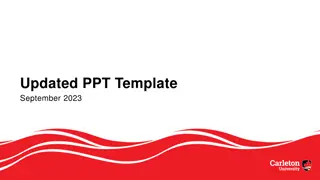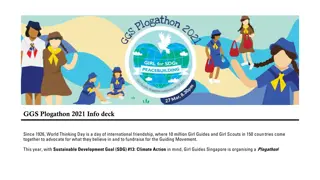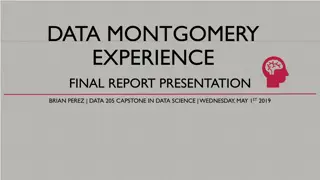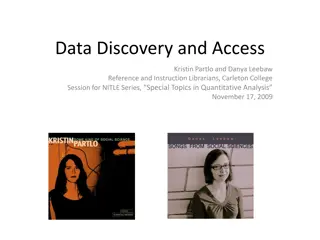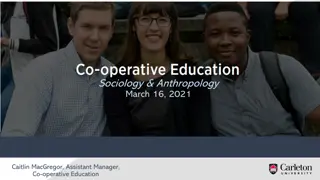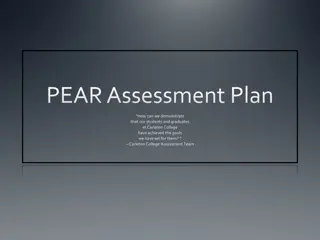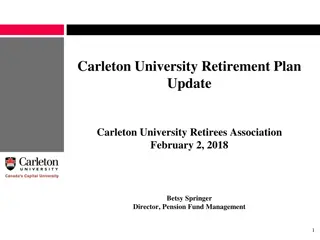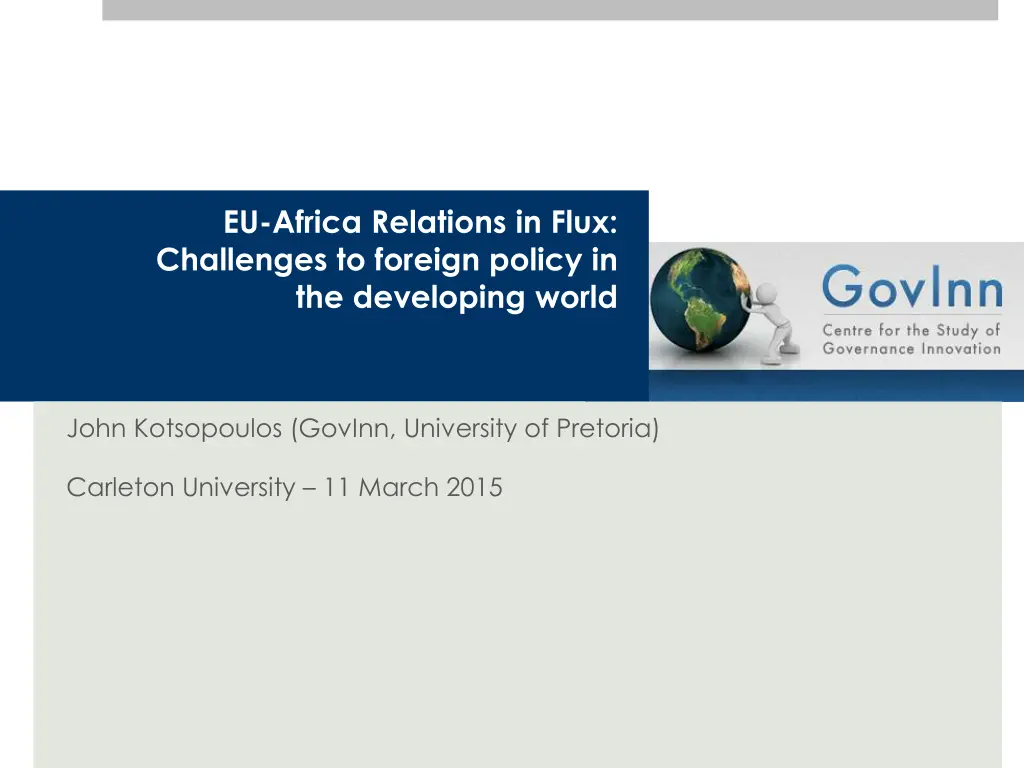
Understanding EU-Africa Relations: Recent Trends and Challenges
Explore the dynamic landscape of EU-Africa relations, delving into changing capacities and interests, the evolution from trade to political dialogue, African agency in international relations, and the implications of S-S partnerships. Gain insights into institutional changes, the role of Africa in global fora, legacy dynamics, and the importance of individual agency in negotiation processes.
Download Presentation

Please find below an Image/Link to download the presentation.
The content on the website is provided AS IS for your information and personal use only. It may not be sold, licensed, or shared on other websites without obtaining consent from the author. If you encounter any issues during the download, it is possible that the publisher has removed the file from their server.
You are allowed to download the files provided on this website for personal or commercial use, subject to the condition that they are used lawfully. All files are the property of their respective owners.
The content on the website is provided AS IS for your information and personal use only. It may not be sold, licensed, or shared on other websites without obtaining consent from the author.
E N D
Presentation Transcript
EU-Africa Relations in Flux: Challenges to foreign policy in the developing world John Kotsopoulos (GovInn, University of Pretoria) Carleton University 11 March 2015
Outline Two part presentation: EU-Africa relations Breakdown changing capacities and interests of both the EU and African Union Evolution of EU-Africa relations From trade/aid to political dialogue and beyond Case study Africa s renewed international prominence, the proliferation of S-S partnerships and the consequences for N-S relations 2
Trends Purpose to study recent trends ( bring Africa back in - S derbaum): African agency Africa in international relations is not simply an object or canvas to be acted upon (Harman & Brown, 2013) Growing S-S relations Identity politics material and ideational implications for N-S relations Partnership phenomenon Instrumental? symbolic? (Olsen 2006) 3
The EU and Africa Institutional Change the case of the European Union What is the EU in Africa? Trade and aid partner (Cotonou) Political dialogue (Joint Africa EU Strategy) Hegemon? Contradictions Normative power coupled with donor leverage Aggressive trade opening and market liberalisation (Economic Partnership Agreements) 4
Africa Africa What do we mean by Africa in this context Pan-African Norm (Nkrumah) African Union (+Morocco) Member States Inherent tension between levels exposed i.e what does Africa want in international fora? Africa rising narrative Implications material and ideational 5
Legacy Material/physical implications of legacy EU-ACP (a circumscribed way of interaction) Donor-client dynamic Asymmetry Ideational implications of legacy o Stereotypes o (mis) trust o role expectations 6
Account for the Individual Situate the individual in the negotiation process how much space for agency? Breaking stereotypes Lag Trust building Consequences of changing perceptions Revaluation of images reframing of negotiation issues 7
Case Study -- Partnerships Three phase approach Analysis of Partnerships Growing number of partnerships of varying levels of engagement Understanding Consequences on the African Union Material (resources, time) and ideational (policy orientation) implications Understanding Implications for the EU Place for political dialogue North-South relations 8
Hypothesis Hypothesis: Burgeoning growth of African partnerships with external actors (mostly representing the Global South) has expanded Africa s global profile but also revealed cleavages at various levels of organisation, most prominently between the African Union technocracy and the member states Parallels to Africa s own earlier growth of overlapping regional organisations and their purpose. Cont... 9
Hypothesis Cont... Hypothesis: Immense growth has precipitated move to rationalise partnerships and their purpose Explicit focus on outputs favours the explicitly tangible trade and aid, capacity building, etc Bolsters regime-boosting Where does this leave the EU? Political dialogue challenged (ref: JAES) EU s normative route at crossroads? 10
Analysis of Partnerships Partnerships Definition contested ( partnerships is what you want it to be ) Commercial linkages Development Aid Capacity building (security, policing) Explore S-S and N-S EU-Africa, USA-Africa, India-Africa, China-Africa Dynamics of partnerships What is acceptable in one context and is it so in another? e.g. No Mugabe to US Summit no problem India, first two summits only 10-15 African HoG/HoS 11
Analysis of Partnerships Partnerships cont.. Purpose of Interregionalism Regionalism Represents policy and project (association with formal programming and coordination) Regionalisation Process of cooperation, integration, cohesion, identity building Regime boosting Partnerships bring prestige (and legitimacy) to African leaders 12
Analysis of Consequences of Partnerships Interregional Partnerships and the African Union Capacity stress Too many commitments renders implementation difficult Rationalisation process in progress Global Review of Africa s Strategic Partnerships with Other Parts of the World (African Union, 2012) China, India and Korea held up as exemplary partnerships JAES identified as disappointment (and subsequently modified in 2014) 13
Conclusion Instrumentalism in Africa Agency explicit (not an inconsequential thing) Partnerships as tools and alternatives to old N-S order Unintended consequences of proliferation of partnerships Instrumental partnerships based on trade leave less space for traditional dialogue Summits often more about pageantry than debate Multilevel cleavages within Africa exposed EU potential casualty as ambition to engage at political level possibly undermined EU the permanent family member can be taken for granted (e.g. S Africa rels w EU) However, the ideational still relevant though less so with respect to the EU Identity and pull of S-S strong (leads to slackening of expectations in partnerships) 14


